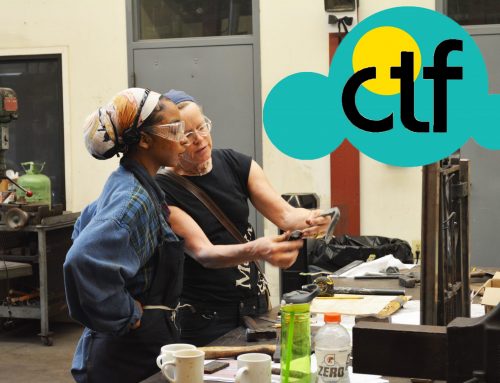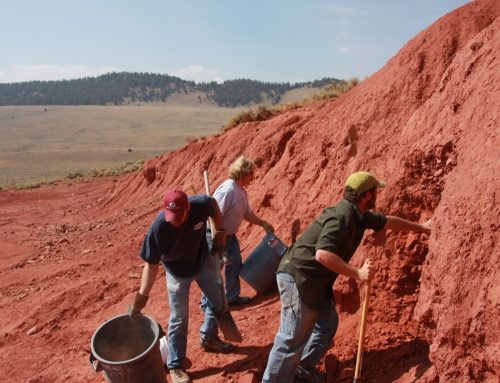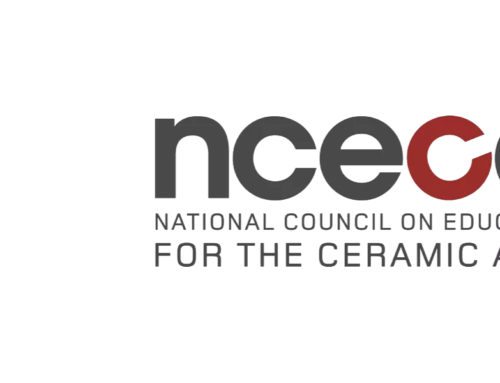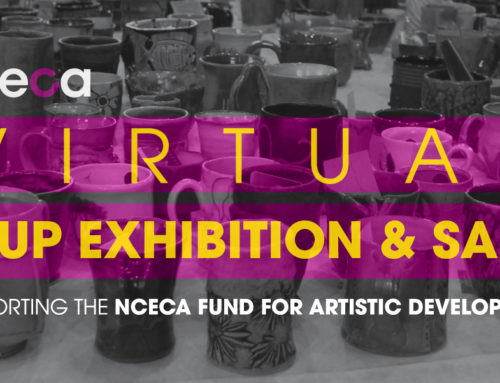What does a utopia look like? A claytopia? How do we construct it? The more Western civilization crafts their ideal world, the more we understand the tragic domino effect that results from our modifications. Janet Macpherson and Magdolene Dykstra’s collaborative installation investigates a dystopian landscape where plant and animal life have been mutated to the brink of sustainability. Can these altered life-forms survive? Should they?  In such uneasy times, art plays a crucial role in highlighting the nuances of our reality in ways that trigger more empathy than the daily news cycle. This Land Like a Mirror uses traditional techniques slip casting and press molding in service of an experimental installation composed entirely of unfired clay. This impermanent installation will ultimately vanish, returning to its original ingredients. By high
In such uneasy times, art plays a crucial role in highlighting the nuances of our reality in ways that trigger more empathy than the daily news cycle. This Land Like a Mirror uses traditional techniques slip casting and press molding in service of an experimental installation composed entirely of unfired clay. This impermanent installation will ultimately vanish, returning to its original ingredients. By high
lighting the fragility of this fantastical realm, this collaborative installation encourages us to examine our relationship to the world we continue to build and destroy.
Magdolene and Janet have joined their distinct approaches for this exhibition. Macpherson (Emerging Artist 2018) addresses the hierarchical beliefs around nature in which we categorize, consume and attempt to control the natural world. Her hybrid animals reflect on the unsettling manipulation of human and animal bodies. Using molds cast from found toy animals and religious statues, Macpherson uses slip-casting to collage animals together in a way that recalls genetic modification and mutation.
These objects reveal a discomforting reality that explores the tension between freedom and constraint, pleasure and pain, care and hindrance.  The wrapped animals explore ideas of repression, confinement and torture. Our familiarity with clay figurines renders these works especially accessible and elicits tender concern for them. This strange slip-cast menagerie functions as a metaphor for our own complicated existence: fragile in our persistence.
The wrapped animals explore ideas of repression, confinement and torture. Our familiarity with clay figurines renders these works especially accessible and elicits tender concern for them. This strange slip-cast menagerie functions as a metaphor for our own complicated existence: fragile in our persistence.
Dykstra’s raw clay installations explore the landscape of an alternate reality, finding lineage in the Romantic artists of the 19th century who pursued the sublime in grand landscapes.  Historically, the sublime has been associated with great things in nature – torrential storms, cavernous depths, frightening heights, and infinitely barren deserts. The sublime experience is born in a sense of amazement and is often linked to fear of something beyond our understanding or control. As opposed to the thrilling mountaintop experience, Dykstra’s forms reference the amazing intricacy of microbiology, featuring an abundance of unfamiliar life.
Historically, the sublime has been associated with great things in nature – torrential storms, cavernous depths, frightening heights, and infinitely barren deserts. The sublime experience is born in a sense of amazement and is often linked to fear of something beyond our understanding or control. As opposed to the thrilling mountaintop experience, Dykstra’s forms reference the amazing intricacy of microbiology, featuring an abundance of unfamiliar life.
In further contrast to Romantic art which neatly contained their landscapes, Dykstra’s imagined worlds push beyond the boundaries provided for them invading our tense reality. These unfamiliar landscapes offer a window of escape, where we explore our relationship to an alternate world which bears similarities to our own. 
The installation at Truckstop Gallery is the result of months of experimentation, evaluation and editing. To create this installation, Magdolene and Janet met once a month starting in August. The first several studio sessions were a time of exploration, where the artists worked together to discover how their very different approaches to clay could merge together. As they continued to generate the work, they continued to engage in critical discussions on how the project was progressing. While Magdolene works predominantly in unfired clay, this is a departure for Janet who usually fires her porcelain hybrids.  The empathy evoked by Janet’s creatures is heightened by their fragility.
The empathy evoked by Janet’s creatures is heightened by their fragility.
In their collaborative installation, Macpherson and Dykstra present an ecosystem caught in a tenuous balance. The installation in a circular format has no beginning or end. Some animals seem to be adapting and hybridizing with the mutating landscape, while others are overcome. It is left up to the viewer to determine whether or not there is hope for this scene. At times Dykstra’s raw clay landscape supports and shelters MacPherson’s slip-cast porcelain animals; however, occasions where the terrain threatens the hybrid beasts complicate our understanding of how this ecosystem functions. Reveling in mystery, this installation does not give up hope altogether, nor does it present clear solutions. Rather, it exercises our compassion while training us to entertain the fluidity of the unknown.
Perhaps the humility we experience in wandering through this foreign terrain and confronting its vulnerable creatures will enable us to approach our world with an awareness of the delicate interplay between utopia and dystopia.
This Land Like a Mirror Turns You Inward will be on view at Truckstop Gallery (20 Grove St. on Nicollet Island) Wednesday (10am–5pm), Thursday and Friday (12–9:30pm). The opening reception is on Friday, March 29 from 5-9pm. Truckstop Gallery is the first stop on the Northeast Wednesday Daytime Shuttle. The gallery is a 15 drive from the Convention Center. You can also take Bus 11 Northbound.
















